
Brad Shoemaker did not write a bio this year. Please imagine that the one he would have written was pithy and humorous.
My first impulse was to kick off this list by talking about the widespread perception of 2019 as a weak year for games, but one, that framing already felt clichéd before the top-10 lists even started hitting, and two, well, these games! They're very good. They're as good as anything else this generation, in fact, and one in particular I immediately thought of as an all-time classic as soon as I finished it. It's true that more and more studios are going radio silent for the time being, as they start transitioning to development on the imminent new consoles (that phrase feels weird to write), but even so, who has the time for everything that's still coming out?
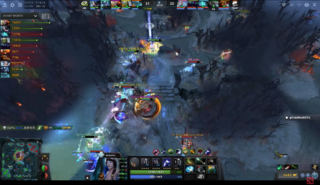
There were so many notable games this year that, before we get into my Proper Ten, I want to use this space to recognize a few honorable mentions: Trine 4, for giving me a modern dose of the lush storybook visuals and physics puzzling that drew me to the series years ago; Jedi: Fallen Order, for being the best Star Wars game in like 15 years and providing a sturdy framework for a hopefully even better sequel; Destiny 2: Shadowkeep, for being the most robust and fun version of Destiny to date, even if Bungie is still figuring out its new evolving content model; Remnant: From the Ashes, for proving the trappings of a Souls game can work well in yet another genre (and just being a hell of a lot of fun to shoot guns in); and Luigi's Mansion 3, which might have actually made my list if it had offered a more expansive, connected, Resident Evil-ish space to hunt ghosts in. Alright, the games that did make the cut!
10. Slay the Spire
2019 turned out to be the year that I was finally hooked by "one of those." I'd never paid much attention to deck-building card-battlers before Slay the Spire strategically hit the Nintendo Switch just before we left for E3 this year, and I proceeded to play almost nothing else on that trip. (Even when the enormously anticipated Cadence of Hyrule surprise-launched at the end of that week and I instantly got deep into it, I still kept feeling the one-more-run pull of this thing.) This game strikes such a precise balance of depth and accessibility; the battle mechanics, card designs, and constantly interesting combat scenarios you find yourself in never feel like they skimp on technical complexity, but the game explains itself well enough via its extremely thorough tool tips and contextual hints that I rarely felt lost or unsure of how anything worked. It's very pick-up-and-play.
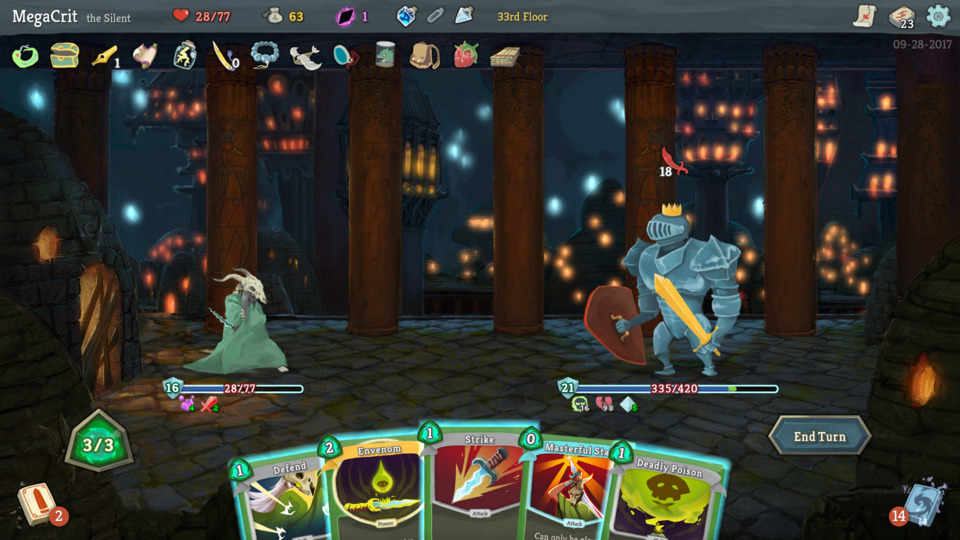
Slay the Spire isn't much to look at or listen to, although I think it does exhibit some unique personality in all the random narrative-ish encounters you run into between card battles. But on a mechanical level, playing it really sandwiches you right between exhilarating and infuriating, where you pull some absurdly powerful, improbable card combo one minute and then get completely flattened into the dirt by the Champ the next. The big reason the whole thing works for me is the sheer number of artifacts, or relics, or whatever they're called; you know, the items you get from bosses and elite enemies that put a seemingly endless number of twists on the game mechanics. Plenty of them offer interesting tradeoffs, but occasionally you'll get one that makes you go "wait, now I can do that?" Once in a while you get to play such a powerful hand that you feel like you're breaking the rules or getting away with something, and that's when I like this game best.
9. The Outer Worlds
My relationship with this category of first-person RPG--which, let's face it, is filled mostly with Bethesda games--has been spotty over the years. Played a decent amount of Oblivion, all of Fallout 3, all of Skyrim, never touched New Vegas (which to this day proves over and over to have been a mistake), only put maybe a dozen hours at most into Fallout 4. Between bugs and endless random quests and less-than-engaging storytelling, I had just started falling off this style of game. So when The Outer Worlds showed up and offered a leaner, more streamlined version of that same experience of allocating stat points to master the world around you, making what feel like meaningful choices against quest design that feels like it accommodates your actions, I was ready to get back in. The Outer Worlds has a lot to offer: the game's deadpan, defeatist sense of humor really worked for me, the cast of characters is consistently likable and entertaining, and the slow-mo combat felt more free-form and encouraged more creative solutions than just cycling through a menu of enemy limbs.
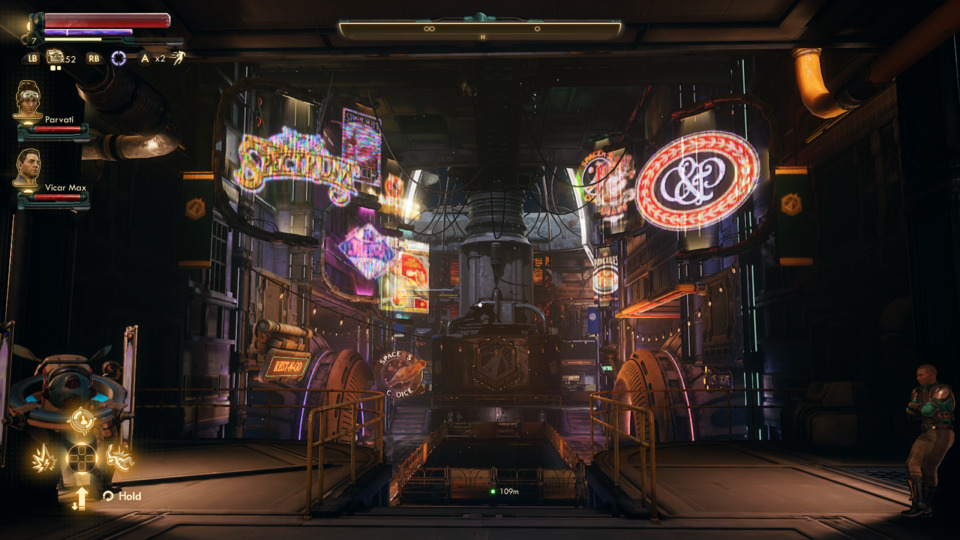
The reason the game is both this low on my list and still on the list at all is that, due to other demands on my time, I haven't managed to get past the early parts of Monarch yet, so I'm judging it purely on my experience with the first half of the game and can't say how well it will hold up in the back half. That 25-ish hours I spent doing everything I could find to do is some of the most fun I've had digging into a game world this year, though, and I'm still eager to get back in there and see where Parvati and Vicar Max's questlines are going to end up, and what resolution I can reach in the struggle against the corporate board running everything into the ground. The Outer Worlds is solid proof that Obsidian can pull off this kind of game without working on someone else's property, and now that the studio is under the Microsoft umbrella, I'd love to see a follow-up with as much new ambition as this game has heart.
8. Astroneer
Slay the Spire wasn't the only "one of those" that finally got me this year; what Slay the Spire did for card games, Astroneer also did for survival. This game doesn't exactly start out asking you to chop down trees and gather the wood to make a crafting bench, but by the time you're stuffing "organic" material into your fifth daisy-chained portable generator to power up some weird monolithic alien structure, you've long since realized it fits right into that survival-game mold. What really got me about Astroneer was its tech tree and the delightfully hands-on, tactile feel of working with all its space survival tools, manually plugging power cables from one high-tech doohickey into another or mounting wind or solar devices onto the hood of my rover so I could power it even when the battery ran down. I love a game with overlapping, interacting systems--wind, electricity, sunlight--and this game not only has those but gives you plenty of fun tools to harness them in service of building a more and more elaborate base and extending the range of your efforts to explore.
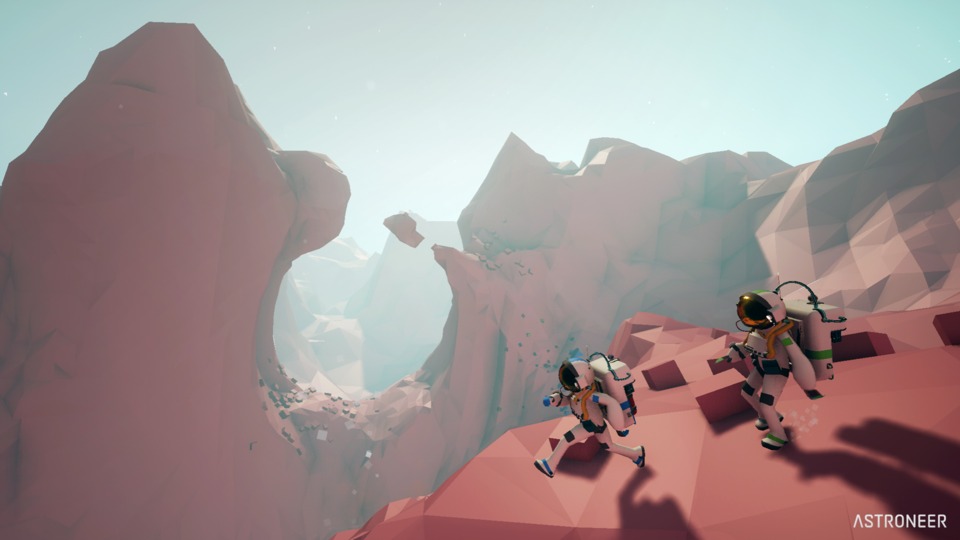
Astroneer just feels like it has a lot going for it: it has such a great, clean, eye-catching look, and the powerful terrain deformation tool really lets you dig into the landscape and explore up and down in ways you wouldn't be able to without it. And it finally started to give me a sense of how you can sort of imagine your own dramatic storylines in this sort of game. Driving halfway around the starting planet and then realizing I had completely lost my way back to my base led to a lonely, slightly desperate couple of hours of trying to retrace my steps, figure out where I hadn't already been, nearly giving up and starting a new save, and then finally throwing up my hands and just digging, digging, digging until, tunneling out the other side of that mountain... there it was, the beacon above my home base. That totally random, unique event stuck with me more than a lot of the scripted story moments I've seen this year.
7. Apex Legends
This is just a hunch, but I'm starting to think Respawn is pretty good at making first-person shooters. Just when I thought I might be done with battle royales, at a moment when PUBG had become too punishing to keep my interest ,and Fortnite's cartoonish style and building focus weren't doing anything for me, out of nowhere came this intelligent, balanced, unique take on the genre. Satisfying hero abilities and team synergies, a great assortment of weapons and traversal abilities, and some exceptionally smart streamlining that enabled better teammate communication and gear management made Apex Legends my new battle royale of choice from the very first match.
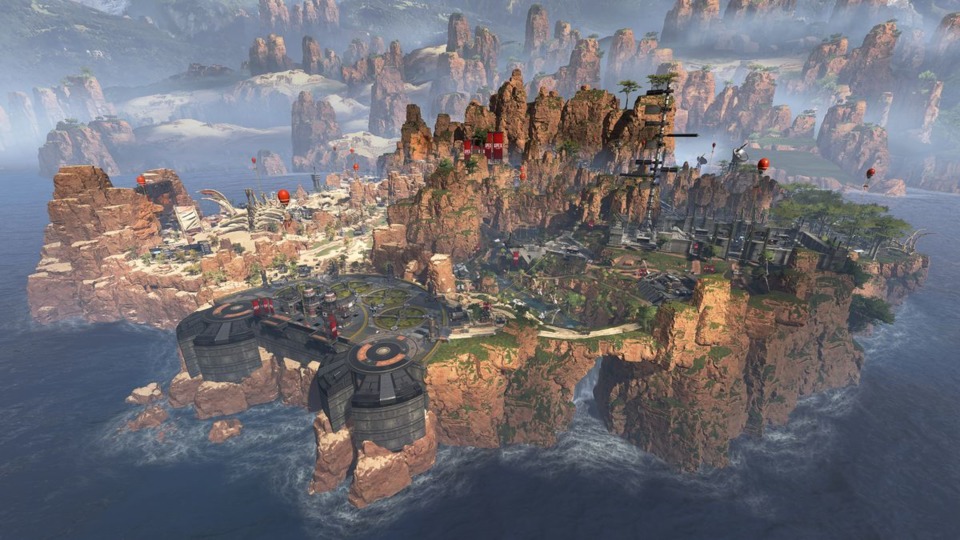
This is entirely personal to my own experience, but going to that Apex reveal event in LA--particularly without knowing anything other than "new Respawn game" beforehand--made for one of those moments when I felt extra lucky to have this sort of job. My internal monologue that day is quite entertaining in retrospect, from mild confusion during the initial reveal trailer ("wait, Respawn's really doing a battle royale?") to getting my hands on the game for myself ("holy crap, this thing seems really good") to feeling legitimately angry when I finally had to stop playing and go catch a flight, and then being able to think about nothing but playing more Apex during the torturous following days between the event and release. And all that was capped off by the excitement of getting to come back and tell everyone about this crazy surprise game that was about to release out of nowhere. The whole thing made for one of those unique experiences from my time covering games that I won't forget anytime soon.
6. Cadence of Hyrule: Crypt of the NecroDancer Featuring The Legend of Zelda
Nintendo has become the master of surprise game reveals that both go by so fast and come so far out of left field that you barely have time to mumble "wait, what?" before they're already on to the next thing. It's probably not a coincidence that two of those surprise games made it onto my list for the year, and they're both based on ideas--or more specifically, combinations of ideas--that I certainly never knew I wanted till I got them. (This style of surprise announcement was enough to make me start carrying my Switch to work with me every day, just in case Nintendo dropped something wild onto the eShop out of nowhere.)

Look, I love Crypt of the NecroDancer. I love Danny B. And I guess I'd even say that at its best, I love The Legend of Zelda. So on one level there was no way I wasn't going to go gaga for Cadence of Hyrule. But I didn't anticipate that NecroDancer's rhythm action could integrate so tightly with the overhead Zelda milieu. I never expected the developers to show this much creativity in putting together their Zelda-and-music mashup. (Gohmaracas? Wizzroboe? Come on.) And I sure as hell wasn't prepared for the sheer amount of variety and wide range of influences in the many new arrangements of classic Zelda music on the soundtrack, or rather three soundtracks, considering every song seems to have at least three different versions. I loved every minute of this game right up till it ended kind of abruptly as soon as it sent you to the Dark World. In the end, my biggest complaint about Cadence of Hyrule was just that there wasn't more of it.
5. Tetris 99
"What if Battle Royale but Tetris" seemed like a joke that was almost overly predictable once PUBG and Fortnite start overtaking the shooter market, and it's easy to laugh in awe at the audacity Nintendo had in even making this thing, much less giving it away for free-ish. But the real surprise is just how much depth and care they put into making a Tetris game that needed to accommodate this many players. Being able to target specific players, or even specific categories of players, and having different combo patterns affect how you defend and counterattack, gives the game a technical ceiling much higher than I ever guessed it would have when that initial reveal trailer rolled. That gives you the chance to see more improvement in your own performance the more you play.
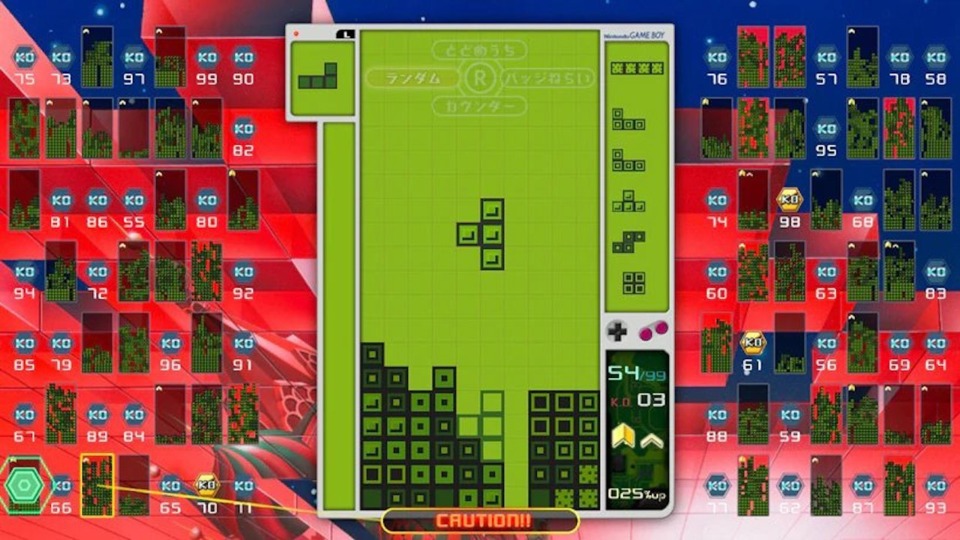
Actually, the other big surprise is just how much Tetris 99 I actually did play this year. It's the only game to consistently make me pull my Switch out of the dock and play it as a handheld. It forced me to up my Tetris game in ways I didn't think were possible and enter a sort of primal mental zone in those utterly heart-pounding, frantic moments when it's down to you and one other player and the pieces are dropping faster than you can consciously think about. It had me clutching my Switch nearby even while visiting family across the country just to make sure I earned every last unique weekend event skin... except for the Pokémon and Luigi ones, which I apparently missed over the last few weeks, which is much more upsetting to me than it should be. That's how much I like Tetris 99!
4. Mortal Kombat 11
Nothing will ever dethrone Mortal Kombat II as my favorite in the series because, let's be honest, nostalgia is not a rational force. But 11 is the closest any modern MK has come to that lofty position, and I'm more than comfortable calling it the best Mortal Kombat to date ("best" and "favorite" of course not being the same). First of all, I haven't enjoyed playing an MK game this much since II, and the absolutely superlative training mode in this game enabled me to go pretty hard online and achieve what I considered a respectable rank in the first Kombat League. And the unadulterated nostalgia trip of the Krypt on Shang Tsung's island was also a great, extended moment of pure wish fulfillment that for a time made me feel a little like I was 13 again.
It's really the story mode that makes this package for me, though. Half a year after playing through it, I'm still wondering how a fighting game story could be this good, let alone a Mortal Kombat story, but the juvenile cheese of 9 and X's plodding focus on the Kombat kids pale in comparison to 11's historic all-or-nothing stakes. The story delivers moment after gripping moment of real dramatic weight, gives nearly every old favorite MK character an engaging new arc, and finds ways to bring back some old favorites with a fun fish-out-of-water sort of twist. Despite not feeling 100 percent satisfied by the ending and being a little unsure where NetherRealm will take things next, I had a persistent impression of MK11 as the ultimate Mortal Kombat story the whole way through it, and it's hard to imagine how they'll ever top it.
3. Control
Max Payne just plain blew my mind, along with everyone else's, back in 2001. And I'd say a Remedy game hasn't come close to leaving such a deep impression again, until Control came along. The world this game builds--with its foundation of workaday government bureaucracy overlaid with utterly insane, nonstop paranormal goings on--is one of the most unique and engrossing I can ever remember in an action game. Narratively, Control spins a lot of plates at once: in a general sense it does a great job of fleshing out the larger reality of the FBC with its interdimensional board of directors and bizarrely powerful everyday objects and omniscient janitor, and it also builds a seriously compelling mystery around Jesse Faden, what happened to her in her childhood, and what's driving her to master the bureau's secrets. The frequent cuts to her internal monologue are also a great touch that rounds out her character. I hit a point where I was so engrossed in the story that I just couldn't put the game down till I'd seen it through to the end.
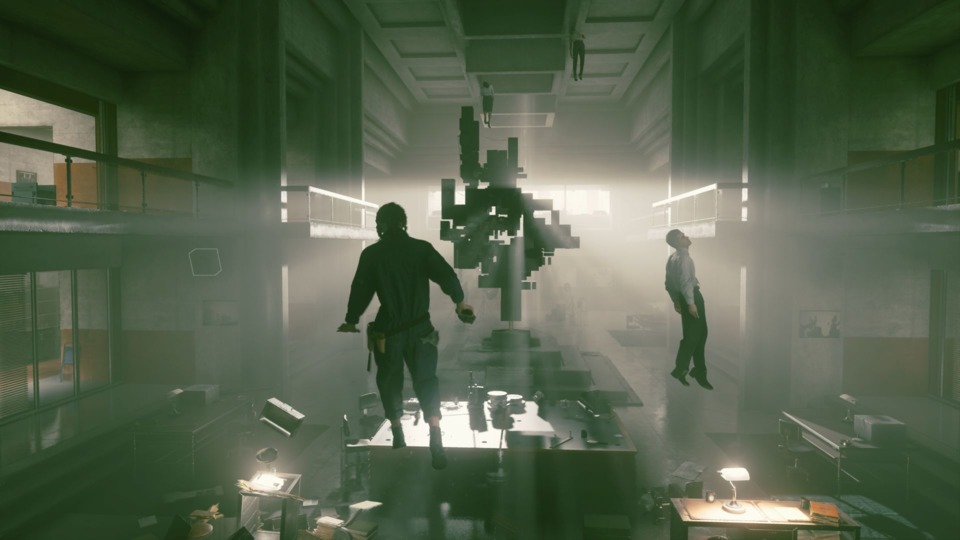
In a world where the basic gameplay elements of Control clicked better with me (and Outer Wilds didn't exist), this could have easily been my number one game in 2019. In concept I really enjoy what Remedy was doing here; telekinetically hurling office furniture never, ever got old, and the amount of kineticism they built into the environments to make the action feel explosive is really impressive. Seriously, just melee a desk a few times and take note of how much of the environment is physically modeled to animate wildly under duress. The ability to straight up fly is also arguably the best late-game upgrade in history, not least because it lets you start seeing how many weird secrets there truly are buried in the bureau's walls. My problems with the game are mostly a case of a few knobs being turned too far. A little more combat feedback, a few less enemies nearly one-shotting me from out of frame, boss encounters that weren't quite so frustrating, and an endgame that didn't revolve around what felt like endless combat waves, and Control would be up there with my favorite games of the generation. It's great to hear that the game has steadily been doing well for Remedy and that they might be able to do more with this world in the future. I'm absolutely dying to play the DLC, and I can't remember the last time I said that about a game.
2. Resident Evil 2
There's just no way this from-the-ground-up remake should work as well as it does, especially after the GameCube-era redo of the first Resident Evil, which merely recreated the original game's style of gameplay with better graphics. That first remake moderated my expectations for Resident Evil 2 even after it was revealed to be a fully 3D action game, but I just had no idea how well Capcom would be able to capture the oppressive, creepy atmosphere and byzantine environments of the original RE games--the feeling of being backed into a corner with not quite enough ammo, the enduring mystique of sticking gems and plates into sockets and statues--while modernizing the outdated elements and making the game feel contemporary and relevant. That's a textbook example of what a remake should do.
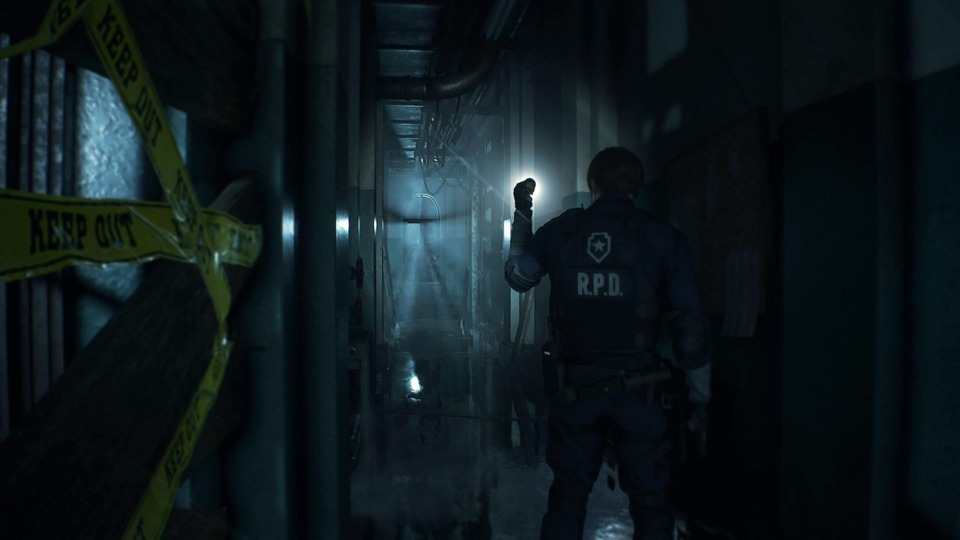
Even removed from that historical context, RE2 is such a well designed and great-playing game in its own right. Ammo is scarce enough to make you value every shot, and the zombies are just fidgety enough to make you really take your time with the gunplay. I honestly think one of the game's greatest accomplishments is how it makes every single basic enemy in the early game feel like an intimidating obstacle, which is another one of those classic elements of Resident Evil that a blander, more action-minded version of this game could have ignored completely. Conversely, the game also nods toward a more modern sense of playability with its incredibly useful map, which annotates and color-codes every bit of the game's winding levels as you explore them, so you don't have to waste a bunch of mental effort trying to remember obscure details. This game is such a pitch-perfect mix of old and new. Capcom has certainly seemed lost in the woods for a good portion of this console generation (what ever happened to Deep Down?), but there's no surer sign to me that the company is getting back on track than this, one of the best times I had playing a game this year. The Resident Evil 3 remake has just been announced at the time of this writing, and I can scarcely believe my luck that I might be playing another game as good as this just four months from now.
1. Outer Wilds
A week before we commenced our long GOTY deliberation podcasts, I still wasn't sure what my top game was even going to be, and had a suspicion that something would end up defaulting its way to number one through process of elimination. Then I fired Outer Wilds back up--which I had taken a short stab at two months earlier and bounced off of due to wonky flight controls and a general lack of direction--and proceeded to become so enthralled by it and ultimately so gobsmacked by its quality that I came into the podcast room finally feeling that old familiar fire, so convinced of the game's absolute greatness that I'd go to the mat for it without hesitation.
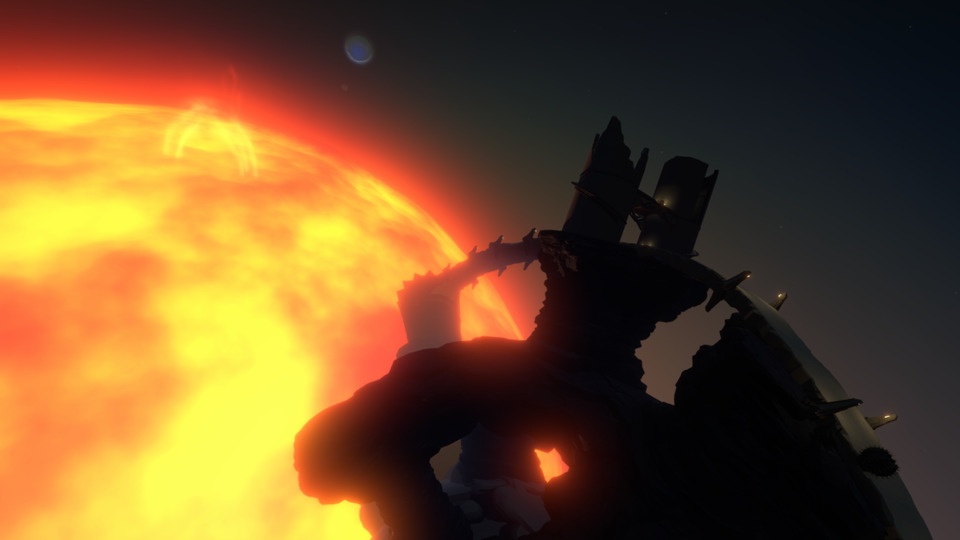
Outer Wilds is easily the best game I played this year and, to me, it's in the conversation to be included among the best games of any year. The sheer design feat of constructing a completely nonlinear story whose component parts can be discovered in any order, and making that story not just work but work sublimely, is enough to make my head spin. I can't stress enough how impressed I am that when the story finally, fully comes together, it hits so effectively on multiple levels: it both starts your mental gears turning with its meticulously constructed reasoning behind the time-looping mystery you're exploring, and it also tugs at your heart strings, as it resists every video game trope about ancient alien races and cosmic existential threats to tell exactly the kind of sorrowful-but-uplifting story that I'm just a complete sucker for. The writing and general style and content of Outer Wilds' storytelling is absolutely masterful and it has one of the best endings I've ever seen. Similarly, the game's use of knowledge as gameplay currency feels like the perfect way to let go of clunky tropes like inventory puzzles and bring this sort of exploration-puzzle-adventure game into the modern era. It's true that the ship's computer keeps track of your discoveries, but the true progress meter exists nebulously somewhere in your head, only reasserting itself each time you have a big "a-ha!" moment and come to understand another fundamental detail or truth about the situation you're investigating.
I could go on and on about how wildly original and affecting this game is, the way it picks and chooses which elements of astrophysics to emphasize and which ones to ignore to make exploring space both thrilling and slightly horrifying, for instance, or how offering its entire simulated solar system as one continuous playable space lends the game world a particular verisimilitude and lets you frequently encounter random moments of grandeur on a cosmic scale. But either you've already played it and know full well how memorable it is, or you haven't, and should immediately. It's not a flawless game--it's occasionally a little frustrating early on and takes a pretty big commitment before you master the flight controls and start connecting enough of the dots to make real progress in solving the game's mysteries--but I can honestly say the last few hours of playing Outer Wilds gave me a feeling of revelation and sentimentality that I've never felt from a game before. It's a game I'm never going to forget, although I wish I could if only to feel that same feeling again.